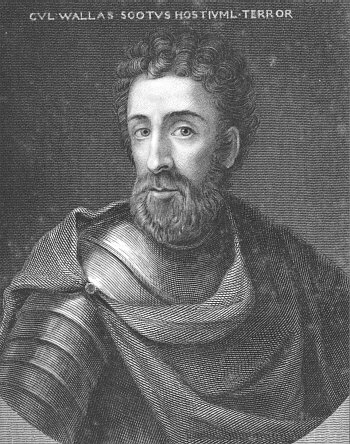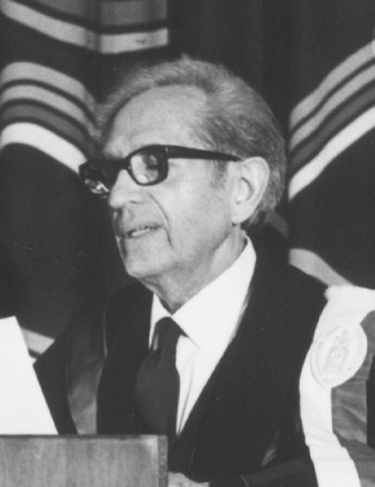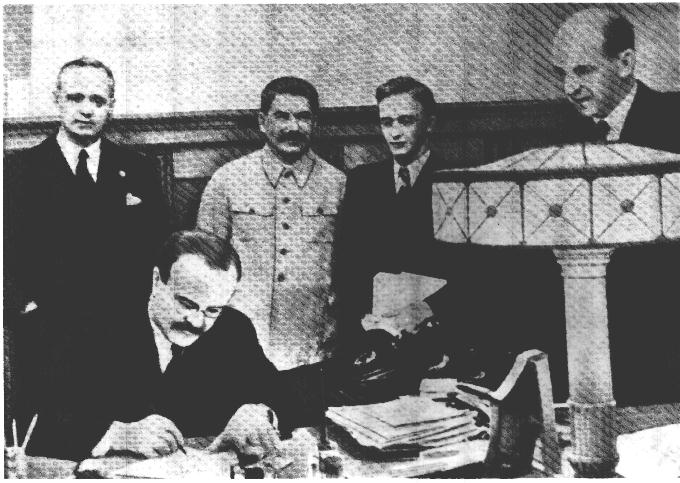NAVIGATION COLUMN
Home Page
The Keninger Archives
The Propagander
Yahoo Groups:
History 1 Day 2
Nuremburg Data
Daily History Pages:
FAIR USE NOTICE: This site could contain copyrighted material the use of which has not always been specifically authorized by the copyright owner. We are making such material available in our efforts to advance understanding of historical, political, human rights, economic, democracy, scientific, environmental, and social justice issues, etc. We believe this constitutes a 'fair use' of any such copyrighted material as provided for in section 107 of the US Copyright Law. In accordance with Title 17 U.S.C. Section 107, the material on this site is distributed without profit to those who have expressed a prior interest in receiving the included information for research that could include educational purposes. If you wish to use copyrighted material from this site for purposes of your own that go beyond 'fair use', you could most likely need to obtain permission from the copyright owner.
|
August 23

0410 The End of the Roman Empire: After a series of battles that continued sporadically for over ten years, the Visigoths under the command of Alaric, sack Rome for twelve days.

Note: In the last decade of the Fourth Century, the adventurer named Alaric became recognized as leader of the Visigoths and made it his aim to find for his people a territory in which they could finally settle. His chosen target was no less than Italy itself, and to this end he fought a long series of wars against the Roman Patrician, a Vandal named Stilicho. The rivalry between these two Germanic renegades was to become legendary. But Alaric died soon after sacking Rome, following a brief illness, and the Visigoths still had no home.

1244 The Turks expel Frederick II crusaders from Jerusalem.

1305 Scottish patriot William Wallace is beheaded and quartered in London, and his body parts are later displayed in different cities. His barbaric murder comes as a result of Wallace's efforts to free Scotland from the occupying English forces. Wallace is the catalyst that nine years later leads to Scotland's independence.

1541 Jacques Cartier lands near Quebec on his third voyage to North America.

1572 In France, late this night, Catholic conspirators begin massacring thousands of Huguenots (French Protestants), under orders of Catherine de Medici, advisor to her son, Charles IX, King of France.
1628 The 1st Duke of Buckingham, an influential but unpopular English statesman, is assassinated at Portsmouth.
1711 Queen Anne's War: A British attempt to invade Quebec by sea fails.
1754 Birth: Louis XVI, last King of France [1784-1792]. Died in 1793. His actions, and those of his wife Marie Antoinette, will provoke the Revolution.
1755 Birth: Jean Baptiste Lislet-Geoffroy, French geographer.
1793 France introduces the first national conscription, claiming all unmarried men aged 18 to 25.
1813 Napoleonic Wars: A Prussian force drives back the French at the Battle of Grossbeeren.

1819 Death: Oliver Hazard Perry, naval hero, at the age of 34.

1821 After 11 years of war, Mexico is declares its independent of Spain by the Treaty of Aquala.
1833 Britain abolishes slavery in the colonies; 700,000 slaves are freed.
1838 Mt. Holyoke Female Seminary in South Hadley, Massachusetts graduates its first class.

1839 Hong Kong is taken by the British in a war with China.

1852 'Uncle Tom's Cabin,' or, 'Life Among the Lowly,' written by novice novelist Harriet Beecher Stowe, is published on this date. Note: The book will stir up a storm of controversy about slavery and become a runaway best seller.
1858 A temperance melodrama titled 'Ten Nights in a Barroom' opens at the National Theater in New York City.

1863 US Civil War: Union batteries cease their first bombardment of Fort Sumter, leaving it a mass of rubble but still unconquered by the Northern besiegers.

1864 US Civil War: The Union navy captures Fort Morgan, Alabama, breaking the Confederate dominance of the ports of the Gulf of Mexico. As the Union fleet of four ironclad and fourteen wooden ships sail into the channel on 5 August, one of the lead ships, the Tecumseh, hits a mine, at the time known as a "torpedo."

In reply to the warning, "Torpedoes ahead!" given by the forward ships, commander Admiral David Farragut calls out, "Damn the torpedoes!" and, taking the lead with his flagship the Hartford, sails over the double row of mines and into Mobile Bay. Although the bottom of the ship scrapes the mines, none explode, and the rest of the fleet follows Farragut's flagship to victory in the engagement with the Confederate flotilla. During the next weeks, the Union navy consolidates its hold on the bay by dispersing and capturing Southern ships and tightening the blockade. With the surrender of Fort Morgan, the Union is now able to cut the South off from its overseas supply routes.
1866 The Treaty of Prague is signed, formally ending the Seven Weeks' War between Austria and Prussian-led German states.
1869 The first carload of freight, boots and shoes, arrives in San Francisco from Boston.
1872 The first Japanese commercial ship visits San Francisco, carrying tea.
1877 Texas outlaw Wes Hardin is captured near Pensacola, Florida.
1883 Birth: General Jonathan Wainwright, hero of Bataan in WW2. Will fight against the Japanese on Corregidor in the Philippines, but be forced to surrender and spend many years in captivity.
1889 The first ship-to-shore wireless message is received in the US in San Francisco.
1892 John H. Stedman of Rochester, New York, patents the printed streetcar transfer.

1898 Birth: Albert Claude, a biologist who never graduated from high school but still managed to win the 1974 Nobel for his pioneering work on the substructure of the cell.
1900 Booker T. Washington forms the National Negro Business League in Boston, Massachusetts.
1902 Fannie Merrit Farmer, among the first to emphasize the relationship of diet to health, opens her cooking school, Miss Farmer's School of Cookery, in Boston, Massachusetts. Farmer is the leading cooking authority of her day. Known as the 'mother of measurements', she revolutionizes food preparation throughout the world with her introduction of precise measurements; the level teaspoon, tablespoon, cup, etc. Note: In 1919, candy maker Frank O'Connor will pay Fannie the ultimate compliment by naming his now famous company 'Fanny Farmer Candy Shops.'
1904 Hard D. Weed of New York State patents the grip-tread tyre chain for automobiles.

1905 Birth: Ernie Bushmiller, cartoonist, creator of Nancy.
1914 WW1: The Belgian defenders of Namur are overwhelmed by Bulow's troops after a brief siege.
1914 WW1: The BEF near Mons is struck by the full weight of Kluck's German First Army. Learning of the fall of Namur, Lanrezac orders a general retreat, leaving the outnumbered British with an unprotected left flank and forcing them to withdraw during the night.
1914 WW1: In the Galician Battles (Aug 23-Sep 11), Russian forces under General Nikolai Ivanov repel an Austrian offensive, seizing all of Austrian Galicia except the key fortress of Przemysl.

1914 WW1: Japan declares war on Germany and soon besieges Tsingtao, the only German base on the China coast.
1914 WW1: Hindenburg and Ludendorff arrive to take command on the Eastern Front.
1917 A race riot in Houston kills 2 blacks and 11 whites.
1918 WW1: Aug 23-30 Lance Corporal Adolf Hitler takes leave in Nuremberg. (Maser)

1919 The Gasoline Alley cartoon strip premiers in the Chicago Tribune. It is notable for being the first cartoon in which the characters aged.
1921 Feisal I is installed as King of Iraq.
1924 Mars makes its closest approach to Earth since the 10th century.

1927 Two Italian-born anarchists (immigrant laborers), Nicola Sacco and Bartolomeo Vanzetti, are executed in Massachusetts for a robbery they did not commit, despite worldwide protests and demonstrations in support of their innocence. Note: Fifty years later Massachusetts Governor Michael Dukakis will establish a memorial in the victims' honor.
1931 Birth: H.O. Smith, molecular biologist credited with helping to 'open the door' on genetic engineering.
1932 Eugenics: Dr. C. B. Davenport, speaking at the International Congress of Eugenics in New York, suggests Professor Fischer as his successor as president of the International Federation of Eugenic Organizations. Professor Fischer declines, due to other commitments, and Dr Rüdin (in Munich) is elected. (Science)
1933 Aug 23-29 Jewish athletes from 14 countries participate in the World Maccabee games held in Prague.
1936 Church and Reich: The German Evangelical Church publishes its manifesto.
1937 The Radical Peasants Party criticizes the anti-Semitism of the Romanian Orthodox Church. (Edelheit)

1939 -09: The German-Soviet Nonaggression Pact is signed in Moscow. Sometimes called the Ribbentrop-Molotov Agreement of Nonaggression (or simply the 'Ribbentrop-Molotov Pact'), it sets up plans for a 10-year collaboration between Germany and Soviet Russia. Both parties agree that if either becomes involved in a war, the other will give no help to the enemy; nor will either join any group against the other. There is no clause stating that withdrawal is allowed if one signatory attacks a third party, although this is customary in such treaties. A "secret protocol" to the agreement provides for the partition of Poland along the line of the rivers Pisa, Narew, Vistula and San in the event of what is referred to as a "territorial transition" taking place in Poland. The Soviet Union is allocated all the Byelorussian and Ukrainian provinces of Poland, as well as the province of Lublin and part of that of Warsaw. Germany is to take the western part of the country, though the possibility of retaining a small remnant of a Polish State is kept open. The USSR is to have a free hand in Finland, Estonia and Latvia; and Germany in Lithuania. Soviet interest in the Rumanian province of Bessarabia is recognized by Germany.
1939 -09: Hitler is delighted with the pact. He believes Stalin has just handed him the perfect opportunity to restore the Reich's "rightful possessions" without having to fight a war on two fronts. He is certain that this new treaty with the Russians will allow him to safely reclaim Danzig and take back the Polish Corridor. Britain and France, he tells his staff, without other major allies, will not go to war in such a situation... "especially over what everyone knows are, by all rights, German territories anyway." (Toland)

1939 -09: Hitler sets the date for the invasion of Poland: Saturday, August 26, at 4:30am. Colonel-General Alfred Jodl is appointed Chief of staff of the armed forces supreme command (OKW).
1939 -09: Orders are issued to confiscate all radios belonging to German Jews. (Eyes)
1939 -09: The British and French Special Military Mission leaves Moscow.
1939 -09: French citizens are advised to leave Paris. Churchill leaves France and returns to London. Daladier asks the Permanent Committee for National Defense whether they can stand by and watch the disappearance of Poland and Rumania; they agree that they cannot.
1939 -09: Sir Percy Lorain, British Ambassador to Rome, informs his government that he is confident the Italians will not fight. Mussolini declares himself ready to mediate.

1939 -09: Hitler writes back to Neville Chamberlain: "Germany was prepared to settle the questions of Danzig and of the Corridor by the method of negotiations on the basis of a truly unparalleled magnanimity, but the allegations put forth by England regarding a German mobilization against Poland, the assertion of aggressive designs toward Romania, Hungary, etc. as well as the so-called Guarantee Declarations which were subsequently given had dispelled any Polish inclination to negotiate on a basis which would have also been tolerable for Germany... The German Reich government has received information to the effect that the British government has the intention to carry out measures of mobilization which, according to the statements contained in your own letter, are clearly directed against Germany alone... I therefore inform your Excellency that in the event of these military announcements being carried into effect, I shall order the immediate mobilization of the German armed forces."
1939 -09: Foreign Minister Beck agrees, rather late in the game, to allow passage of Soviet troops through Poland to help defend against a supposed attack by Germany.
1939 -09: Belgium proclaims its neutrality and mobilizes its army for defense.
1940 WW2: Aug 23-24 12 German bombers, unable to locate their targets during an unusual night attack, scatter their bombs aimlessly on South London despite strict orders from Hitler forbidding attacks on civilian targets, especially the city of London. Nine civilians are killed. In retaliation British bombers will attack Berlin several times during the following weeks. (WWIIDBD; Duffy)
1941 Church and Reich: Hitler orders a halt to Aktion T4, the euthanasia program, in Germany. More than 70,000 Germans have been gassed since the passage of the Euthanasia Decree of September 1, 1939. Bishop Galen's sermon (See Aug 3) is probably the single most important reason Hitler is forced to abandon the euthanasia program, although it will quietly continue to operate under the code-name: 14f13. Thousands of political prisoners, habitual criminals, Jews and others too sick to work are certified insane and put to death in concentration camps gas chambers. (Lewy)
1941 Church and Reich: Hanns Kerrl complains to the head of the Reich Chancellery that because of the continuing confiscation's of Church property, which are taking place without his being consulted or even informed beforehand, his continuation as Minister of Ecclesiastical Affairs is becoming "increasingly unbearable." Note: Bormann, when questioned about the continuing seizures, excuses them by saying they had been decided before Hitler's order of July 30. (Lewy)
1942 WW2: German troops reach the Volga above Stalingrad. The Luftwaffe begins heavy bombing of the city with high explosives and incendiaries, causing 40,000 casualties within a few hours.

1942 Volkishness: A swastika banner is planted atop Mount Elbrus in the Caucasus Mountains by a special SS detachment of climbing enthusiasts. The flag they plant is allegedly blessed according to the secret, mystical rites of the SS inner circle. Mount Elbrus, the highest peak in the Caucasus Mountains, as well as all of Europe, is also known as the "sacred hill of the Aryans," a seat of ancient civilizations, and the magic peak of a sect called by some the "Friends of Lucifer." The stunt annoys Hitler, who would prefer that his soldiers spend their time killing Russians. Note: Mt. Elbrus is an extinct volcano formed during the Tertiary Period, it has two cones rising to 18,510 ft. and 18,481 ft. in altitude. The name Caucasia, which was first recorded by the ancient Greeks, has a disputed derivation. Caucasia, which gave its name to the white 'race' of humankind, has long served as a center of human settlement distinguished by ethnic complexity. About 40 languages are still spoken in the region, many of them in the so-called Caucasian group of languages.
1943 WW2: The Russians capture Kharkov.
1943 WW2: The Allies launch the heaviest Allied air raid to date against Berlin. Large parts of the Friedrichstrasse and Wilhelmstrasse are destroyed, including several ministries, hotels, department stores and other landmarks. (Silence).

1944 WW2: Ion Antonescu and his foreign ministers are summoned by King Michael. They are kidnapped in the palace and delivered to a Communist agent named Bodnaras. King Michael makes a radio broadcast announcing that an armistice has been signed with the Russian command and orders the Romanian Army to cease all resistance. No armistice has been signed, and sixteen Romanian divisions are deceived into surrendering. They are quickly transported to prison camps in Russia and Siberia. (Sturdza)

1947 Margaret Truman, daughter of President 'Give Em Hell' Harry Truman, presents her first public concert as she sings before 15,000 people at the Hollywood Bowl. Note: The concert does not get good reviews.
1950 West Germany and Japan are readmitted to the International Amateur Athletic Federation.
1952 The security pact of the Arab League goes into effect.
1952 Death: Frederick George Kenyon, aged 89, British archaeologist and language scholar. Kenyon devoted his life to discovering biblical parallels in ancient Greek papyri, convincing critics that science does not disprove the Bible.
1961 East Germany imposes new curbs on travel between West and East Berlin. In retaliation, the Western powers places tanks and 1,000 troops along the Berlin Wall.

1966 Lunar Orbiter 1 takes the first photograph of Earth from the Moon.
1976 Arab guerrillas hijack an Egyptair plane shortly after takeoff from Cairo. The plane lands at Luxor where Egyptian commandos successfully storm it.

1977 Allen Bryan, a pro bicycle racer, pedals the human-powered aircraft Gossamer Condor for 1.35 miles (2.2 km) at a speed of about 10.5 miles (16.8 km) in Shafter, California. With his flight, Allen wins the prestigious Kremer Prize, one of the last great aviation prizes. Made of thin aluminum tubes and covered with plastic, the aircraft weighs only 70 lb. The Gossamer Condor is designed and built by Paul MacCready and Peter Lissaman. Note: The most interesting of the outstanding Kremer Prizes still unclaimed is that which will be given to the operator of the worlds first successful Ornithopter, a plane that is powered by the birdlike flapping of it's wings. So get out your toolkits, because there is aviation history yet to be made.
1979 The UN opens an office in Vienna.
1980 Polish Revolution: The Polish government agrees to negotiate directly with striking Gdansk shipworkers.
1982 The parliament of Lebanon elects Bashir Bemayel president. Note: He is assassinated just three weeks later.
1986 Gennady Zakharov, a physicist on assignment by the United Nations, is arrested by the FBI and charged with espionage.
1987 Robert Jarvik and Marilyn Mach vos Savant are married. The event is called the "Union of Great Minds" since Savant has an IQ of 228 and Jarvik is the inventor of the artificial heart.
1990 Desert Shield: President Saddam Hussein appears on Iraqi State television with his 'human shields,' a group of Western detainees that he calls his 'guests.' He tells the group that they are being held "to prevent the scourge of war."
1990 East and West Germany announces that they will unite on 3 October, healing four decades of post-WW2 division.
1991 Pravda, one of the world's greatest-circulated and best-known daily newspapers, grinds to a halt in Moscow when Russian republic President Boris Yeltsin, like Czar Nicholas II more than 70 years before him, shuts down the Communist newspaper. Yeltsin accuses the paper of actively supporting the failed Soviet coup which occurred earlier that week. Pravda editors charge that they are victims of censorship, and call upon the journalists of the world to unite in defense of the paper.
1992 Some 200 young right-wingers, cheered on by hundreds of spectators, attack a hostel for foreign refugees in Rostock, eastern Germany and battle police during the night.
1996 US President Clinton imposes limits on the peddling of cigarettes to children.
1998 Yeltsin sacks his entire government, including his reformist premier, Sergei Kiriyenko, and appoints Chernomyrdin interim prime minister.
1998 Anti-US protesters in Khartoum, Sudan, carry a sign that bears a resemblance of Monica Lewinsky and the words 'No War for Monika.'
1999 Berlin once again becomes the capital of Germany.
2004

2004

^ Top of Page ^
Click Here to email the Webmaster of this site.
Web Page Design by Nathan
This page was last updated on August 19, 2005
|
